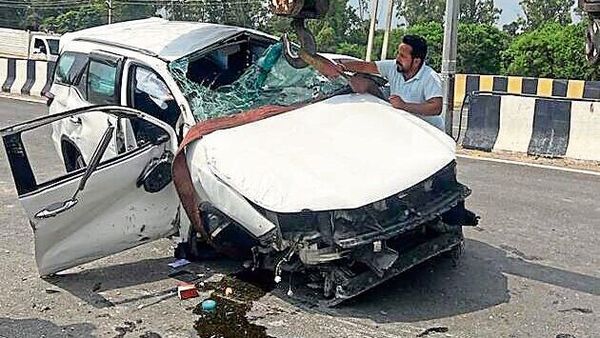Faulty road design often leads to accidents in India, says Nitin Gadkari


Faulty road engineering is often the reason for five lakh accidents reported in India every year, Union Road Transport and Highways Minister Nitin Gadkari said here on Sunday, urging engineers to work towards removing the black spots to save lives.
Gadkari, while addressing the 82nd annual session of the Indian Roads Congress, called for reducing construction costs without compromising on quality by using alternative materials and the latest technology and completing projects on time.
Also check these Vehicles
Talking about the Uttarkashi tunnel collapse in which 41 labourers were trapped and rescued after a marathon effort of 17 days, the minister said one cannot forget those who went inside the tunnel and risked their lives to save the lives of the men trapped inside.
"When people were stuck in the tunnel, I received a briefing daily and was very worried. We could do nothing. All the alternatives, options and materials were engaged to save their lives. We cannot forget those who went inside the tunnel and risked their life to save lives," he said.
"India accounts for 5 lakh accidents and 1.5 lakh deaths annually, and 3 lakh people are injured. This caused a 3 per cent loss to the country's GDP. Like a sacrificial lamb, a driver is blamed for every accident. Let me tell you, and I observe minutely — often, the road engineering is at fault," he said.
While constructing roads, one should ensure that they are engineered properly to prevent accidents, he said.
"I also suffered from an accident and was left with four broken bones. Many are dying. People in the age group of 18 to 34 years account for 60 per cent of accident deaths, and many of them are engineers and doctors. Is it good for the country? Can you, as engineers, work suo motu to remove the black spots? I request you to work to avoid road accidents caused by faulty engineering," he said.
The minister also emphasised the need for perfection in detailed project reports (DPR) without compromising on the design and quality.
"We need to reduce the cost of construction without compromising on the quality. And this is possible. We have to change the mindset, think positively and fastrack the decision-making process," he said.
To make a project cost-effective, the most important thing is to reduce the cost of construction, which rises many times due to delays in land acquisition, environmental clearance, etc., he said.
Gadkari also stressed the use of alternative construction materials, which is also important to reduce costs, and said steel and cement companies keep raising their rates without any reason because of their monopoly.
Highlighting the need to protect the environment, the minister said the National Highways Authority of India (NHAI) has transplanted 78,000 trees.
"We have to protect the environment, recycle materials and reduce the cost of construction while not compromising on quality. I request you to think of this agenda," he said.
He said that time is the biggest capital, and efforts should be made to ensure that a project is completed on time to reduce cost.
"If we reduce time, it will lead to a reduction in cost, controversy, and will expedite work," the minister said, adding that people should be encouraged to adopt new technology and initiatives.
Addressing the gathering, Gujarat Chief Minister Bhupendra Patel said the state government has allocated ₹20,600 crore to the road construction department in the budget this year, which includes a ₹600 crore provision to connect tourism circuits and ₹500 crore to connect bordering areas.
"We are working with zero tolerance against corruption and no compromise in quality in road and bridge construction. Large and small bridges in the state have been surveyed, and priority has been given for a financial provision for repair of bridges," he said.








 1868.0 cc
1868.0 cc 17.5 kmpl
17.5 kmpl



















